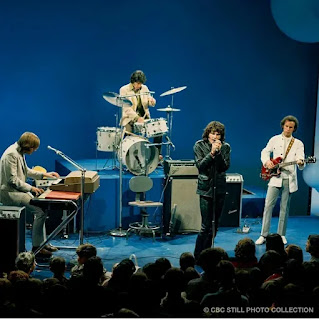THE DOORS’ "STRANGE DAYS": THE COVERS PLAYED AT "THE MATRIX"
About a month before they began recording their second album,
"Strange Days" (released September 1967), The Doors were recorded
live at "The Matrix" in San Francisco (7–10 March 1967). Still
relatively unknown outside of California at this time, the band's setlist
included several covers of other artists' songs, reinterpreted according to
their own sensibility.
Although only original songs appear on "Strange Days", it was
customary for them to include covers in their concerts, which rarely followed
the officialy released material in a linear fashion.
Therefore, it is not surprising that, of the 24 tracks that have
survived from "The Matrix" concerts, nine are covers of other
artists' songs. Most of these date from the second half of the 1950s and the
early 1960s.
These covers predominantly belong to the realms of blues and rhythm and
blues, which seems at odds with the psychedelic rock they would play a few
weeks later in the "Strange Days" recordings. However, throughout the
band's history, both in the studio and live, different genres have always
co-existed.
The best of the covers recorded at 'The Matrix' is undoubtedly the
version of "Gloria" (Them, 1964), which creates the signature
interplay of muted sounds and electric explosions that defines the Californian
group.
Of interest too is the slide technique used by Robby Krieger in
"Money" (Barret Strong, 1959) and "I'm a King Bee" (Slim
Harpo, 1957). As for Morrison's vocals, the most engaging performance besides
the aforementioned "Gloria" is on "Who Do You Love" (Bo
Diddley, 1956).
Among the curiosities of these live shows is 'Crawlin' King Snake' (Big
Joe Williams, 1941), which predates the arrangement on the group's final LP
("L.A. Woman") by three and a half years. The harmonica, played
sporadically by Morrison, appears here for a few seconds.
Another unusual feature of "The Matrix" tapes is the long
instrumental version of the timeless 'Summertime', which features a protracted
electric organ solo by Ray Manzarek.
P.S.: My book "The Doors Through Strange Days"- The most comprehensive journey ever made through The Doors' second LP, is out and available on Amazon.com, uk, mx, ca, etc.
Here’s the link:
.png)



Comments
Post a Comment